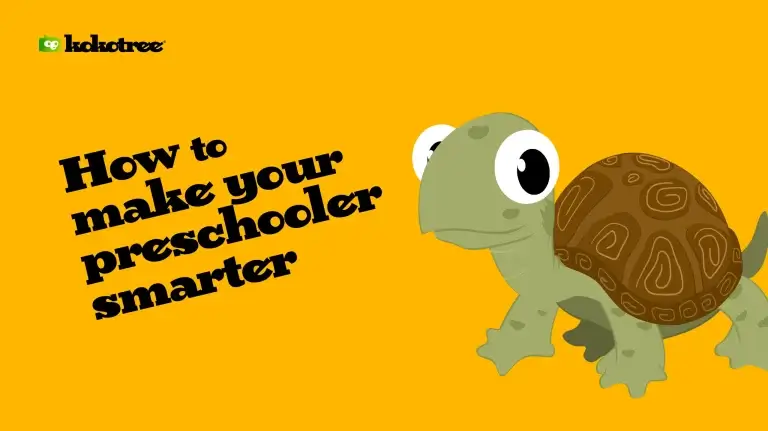

It’s no secret that preschoolers are learning machines. Every day, they pick up new skills and information to help them succeed in school and beyond. But what can parents do to ensure their little ones get the most out of their early education?
Lets look at what signs you can find that your preschooler may already be smart.
Most parents want their children to be smart. But what does it mean for a child to be labeled “smart”? And how can you make sure your preschooler is on the right track to becoming a genius?
It might surprise you to learn that there is no one answer to this question. Intelligence comes in many different forms, and some of the most important skills for success in life don’t necessarily show up on an IQ test. So how do you know if your child is smart or gifted? And more importantly, what can you do to help them reach their full potential?
Some early signs that your child may be smart are:
So how do you know if your child is smart or gifted? And more importantly, what can you do to help them reach their full potential? The best way to determine whether or not your preschooler is gifted is to look for signs of intelligence and talent in a variety of the above areas.
Now that you know the signs that your preschooler may be smart, lets dive into all the different things you can do to cultivate their intelligence.
There are many benefits to reading aloud to your child every day. For one, it helps to foster a love of books and build a foundation for a lifetime of readers. Studies have also shown that daily reading can improve vocabulary, increase comprehension skills, and boost overall school performance.
In addition, reading aloud provides quality bonding time between parent and child. As your child grows, you can continue to find new ways to make reading time even more special. Whether finding new books to read together or creating beloved routines around bedtime stories, daily reading can be an enjoyable and enriching experience for the whole family.
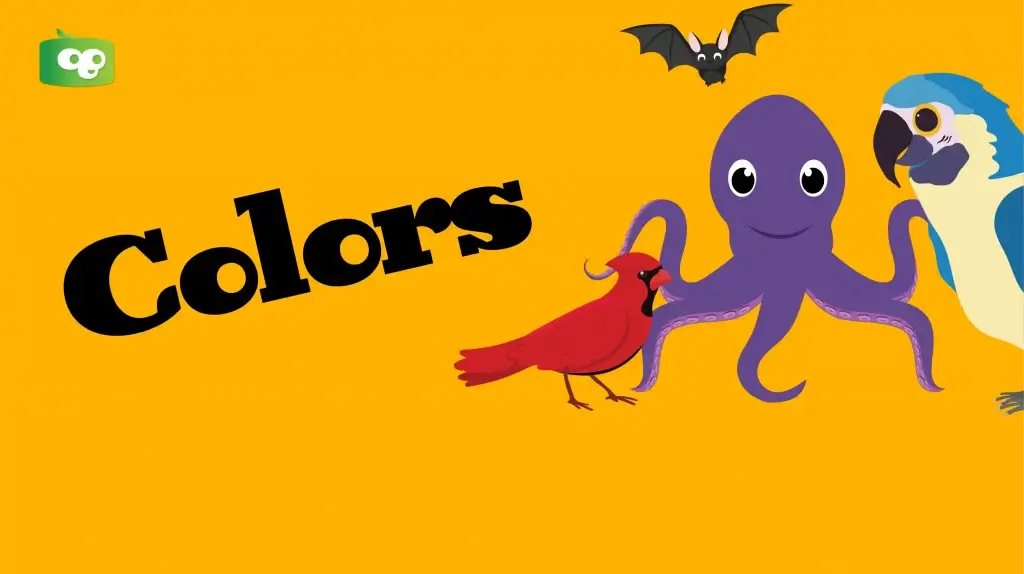
When you’re out and about with your preschooler, take the opportunity to point out colors and shapes. Doing so will help your child learn to notice and identify different colors and shapes. This, in turn, will make them smarter.
Studies have shown that preschoolers who can identify colors and shapes have higher IQs than those who cannot. So when you’re out for a walk or at the store, take a moment to point out the different colors and shapes around you. It’s a simple way to help your child become smarter.
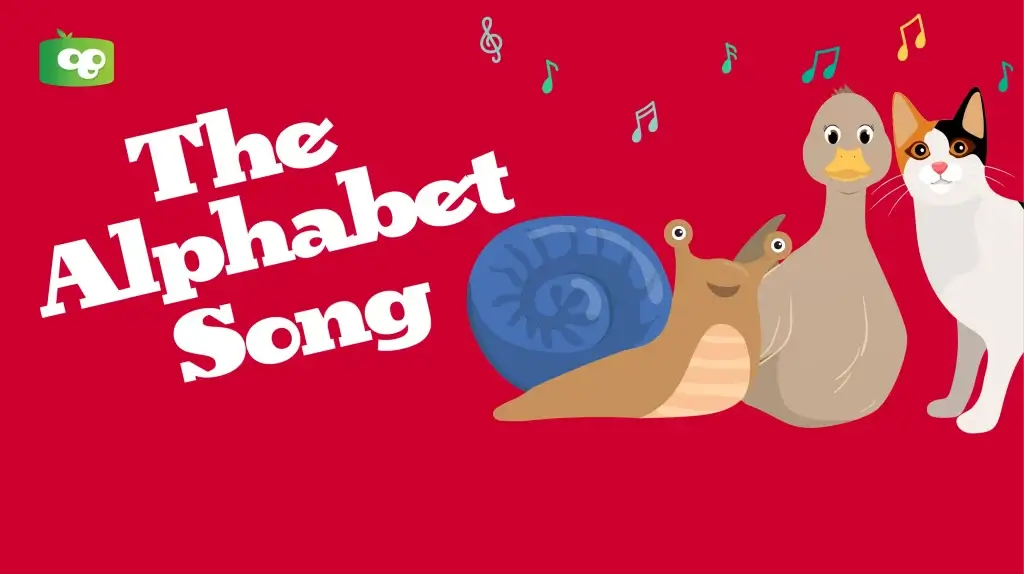
One of the best ways to help your child become more innovative is to teach them the alphabet. Your child will learn how letters and words are put together by learning the alphabet. This, in turn, will help them learn to read. In addition, teaching your child the alphabet can also help them develop problem-solving skills.
If you’re unsure where to start, plenty of resources are available online and in libraries. There are also Alphabet apps and toys that can make learning the alphabet fun and interactive.
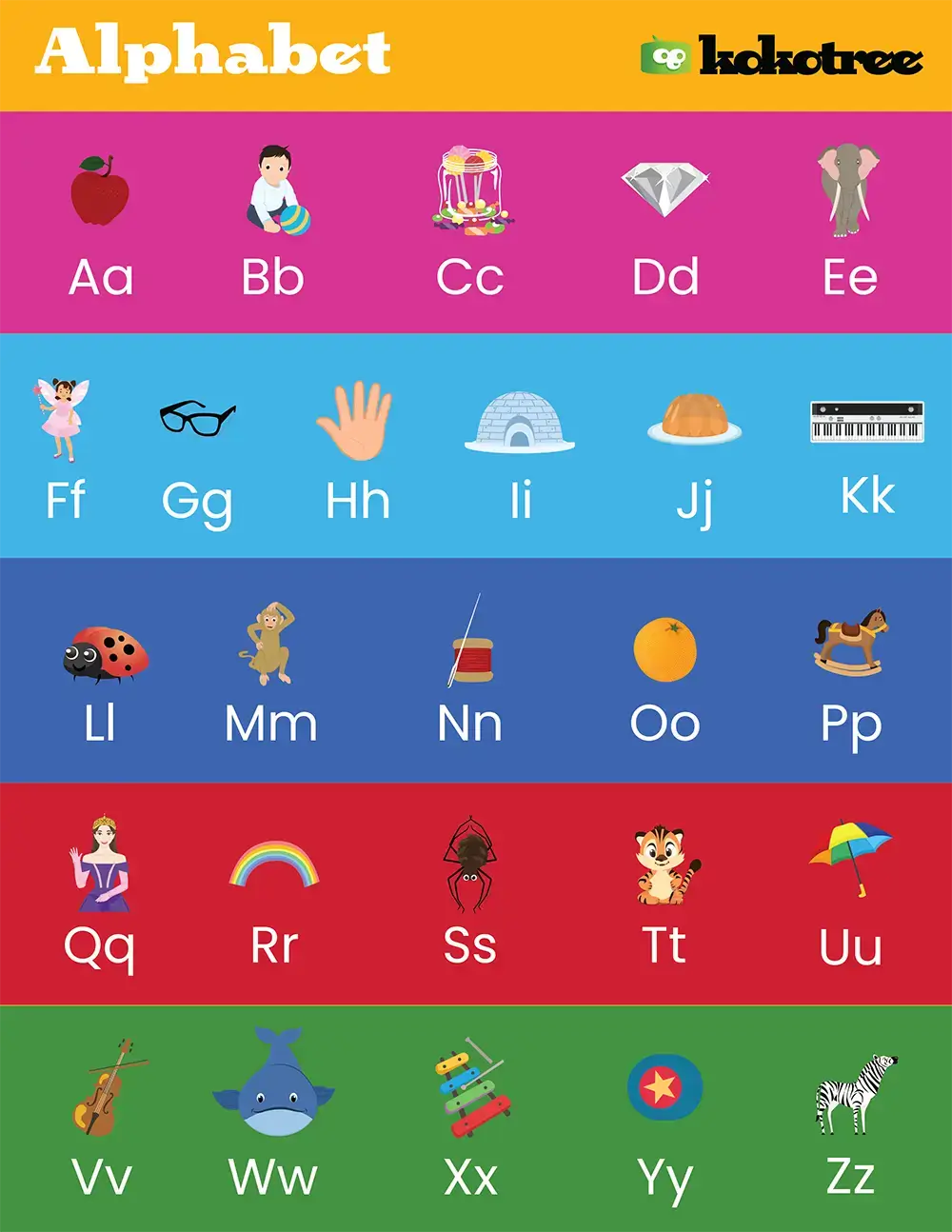
In addition to teaching your child the alphabet, it’s also important to teach them phonics. Phonics is the relationship between letters and sounds. By understanding phonics, your child can read words more easily.
They will also be able to spell words correctly and pronounce them properly. There are many resources available to help you teach phonics to your child. You can find books, games, apps, and toys that will make learning phonics fun and interactive.
It may seem like your preschooler’s drawings, and scribbles are just a bunch of random lines and shapes. But in reality, they’re practicing critical pre-writing skills. By drawing and scribbling, your child is developing fine motor skills and learning to control a pencil or crayon.
In addition, they’re also practicing their hand-eye coordination. So don’t be quick to dismiss your child’s artwork. Encourage them to keep drawing and scribbling, and watch as their skills improve over time.
Many preschoolers love to sing along with nursery rhymes. But did you know that singing nursery rhymes together can help your child become smarter? Studies have shown that singing nursery rhymes help children learn essential skills like phonemic awareness, which is the ability to hear and manipulate the individual sounds in words.
This skill is essential for learning to read. In addition, singing nursery rhymes also helps children develop their memory and attention span. So next time you and your preschooler feel catchy, break out the nursery rhymes and let the learning begin!
Most preschoolers are naturally curious and love to explore their surroundings. They learn best through hands-on experiences, so it’s important to let them get dirty! Construction paper, glue, paint, and clay are great ways to encourage your child’s creativity and help them develop fine motor skills.
It’s okay if things get messy – that’s part of the learning process. Studies have shown that preschoolers with opportunities to explore and get messy are smarter than their less adventurous peers. So go ahead and give your preschooler the freedom to explore – they’ll be better off for it in the long run.
Cooking is a great way to help your child become more imaginative. It’s a hands-on activity that helps children develop fine motor skills and learn about measurements, colors, and shapes. In addition, cooking helps children develop essential life skills like following directions and taking turns.
And, of course, let’s not forget the delicious results! Cooking with your child is a fun and rewarding experience for the whole family.
As a parent, you want your preschooler to be as bright as possible. One way to encourage their growth is to enable them to ask questions. A preschooler’s brain is like a sponge, soaking up information from everything around them. When they ask a question, they are actively engaged in learning. Not only will this help them to understand their world better, but it will also foster critical thinking skills.
Furthermore, asking questions is an excellent way for preschoolers to develop language skills. A great game to play with your preschooler is the “would you rather question game“. So next time your preschooler asks, “Why is the sky blue?” take the time to explain it to them. You may be surprised at how much they learn in the process.
Stories are a great way to help your child become smarter. You are helping your child understand the world and develop critical thinking skills when you tell stories about yourself. In addition, stories are a great way to build vocabulary and improve language skills.
When you tell stories about yourself, your child can relate to and learn from your experiences. So go ahead and share those memories – your preschooler will be all the smarter for it!
Children who learn a second language are more competent than their monolingual peers. In addition, they tend to score higher on verbal and nonverbal intelligence tests. Learning a second language also provides numerous cognitive benefits, including improved memory, attention, and critical thinking skills.
So if you are bilingual, consider teaching your child your second language. It’s a great way to help them become smarter and more well-rounded.

Get free parenting tips, news, updates, and content from Kokotree.
Introducing your child to math and computer programming is never too early. These are two of the most important skills children can learn in the 21st century. In addition, they are both great ways to help your child become more ingenious.
Studies have shown that children exposed to math and computer programming have better problem-solving skills and are more likely to succeed in school. So don’t wait – start teaching your child these essential skills today!

One way to help your child become more innovative is to introduce them to animals. Studies have shown that children who are to animals at an early age have higher IQs than those who are not. In addition, exposure to animals can also help children develop empathy and compassion.
So if you have the opportunity, take your child to a farm or zoo. Or even better, adopt a pet! Introducing your child to animals, you’ll be helping them develop into smarter and more compassionate individuals.
Listening to music can help your child become more imaginative. Studies have shown that exposure to music helps children develop essential skills like spatial intelligence, which is the ability to perceive and manipulate objects in three-dimensional space.
In addition, listening to music has been shown to improve memory, attention, and self-discipline. So pop in a CD or turn on the radio – your child’s brain will thank you for it!
Playing outdoors has countless benefits, including increased physical activity and improved mental health. But did you know that playing outdoors can also make your child smarter?
That’s right – exposure to nature has been shown to improve cognitive development in young children. So get your preschooler outside and let them explore! They’ll be all the smarter for it.
Preschoolers need to learn about their emotions and how to express them. This is a crucial part of their development, as it helps them to understand and cope with the world around them. When children can identify and talk about their feelings, they are better able to control them.
This, in turn, helps to reduce stress and anxiety. Furthermore, talking about emotions helps children develop empathy for others. So if your preschooler is feeling sad, angry, or happy, take the time to speak to them about it. It’s a great way to help them become more intelligent and well-rounded.
Play is essential for preschoolers, as it helps them to develop the necessary skills and learn about the world around them. Preschoolers can develop their physical, cognitive, and social-emotional skills through play. They can also learn to solve problems, express their emotions, and build their imaginations.
Preschoolers with opportunities to play are more likely to be more thoughtful and better able to cope with challenges later in life. So give your preschooler plenty of opportunities to play, and watch them thrive!
It’s important to let your preschooler make mistakes. It might seem counterintuitive, but allowing your child to stumble and make errors is how they learn and grow wiser. Preschoolers can develop their problem-solving skills when they are allowed to experiment and try new things.
And as they encounter obstacles and figure out how to overcome them, they build resilience – an essential quality for lifelong success. Of course, it’s natural to want to protect your preschooler from making mistakes. But remember that every misstep is an opportunity for learning and growth.
So go ahead and encourage your little one to explore experiment… and make a few mistakes along the way. They’ll be all the smarter for it.
Research has shown that families who eat dinner together have smarter kids. That’s because when you sit down for a meal, you have the opportunity to talk and connect with your child. This back-and-forth exchange helps to develop your child’s language skills and encourages them to think critically about the world around them.
In addition, family meals provide an excellent opportunity for learning about nutrition and healthy eating habits. So make it a point to eat dinner together as often as possible – your child’s brain will thank you for it!
A bedtime routine is essential for preschoolers as it helps to set the stage for a good night’s sleep. When you have a bedtime routine, your child knows what to expect and can begin winding down for the night. This predictability helps to ease anxiety and promotes better sleep.
Furthermore, a bedtime routine allows you to spend some quality time with your child before they drift off to dreamland. So take the time to read a book together or chat about your day – your child will love the particular bonding time, and their brains will benefit from the extra stimulation.

Get free parenting tips, news, updates, and content from Kokotree.
Social skills are essential for preschoolers as they help to set the stage for healthy relationships later in life. When your child has strong social skills, they will be better able to navigate school and work challenges.
Furthermore, they will be more likely to form lasting friendships and find success in their endeavors. So how can you foster social skills in your preschooler? One way is to encourage them to share with others. This can be done by modeling sharing behavior or providing opportunities for your child to share with peers.
You can also teach your child about turn-taking, empathy, and other social skills. Doing so will help your child lay the foundation for a lifetime of healthy relationships.
Preschoolers are full of energy, and it’s essential to encourage them to be active. Not only is physical activity good for their health, but it also helps to stimulate their brains. When your child is involved, they are more likely to be engaged and alert.
And as they run, jump, and play, they develop essential motor skills and learn about their bodies and the world around them. So make sure to provide plenty of opportunities for your child to be active. Take them for walks in the park, play games together in the backyard, or join a local sports team.
By encouraging your child to be active, you’ll help them develop physically, mentally, and emotionally.
In today’s tech-savvy world, it’s hard to avoid screens. And while some screen time is okay for preschoolers, limiting their exposure is essential. Too much screen time can lead to attention problems, sleep issues, and obesity. It can also interfere with social skills and disrupt healthy brain development.
So how much screen time is too much? The American Academy of Pediatrics recommends no more than 30 minutes per day for children aged two to five. But even this amount should be supervised and limited to high-quality educational videos. So please turn off the screens and encourage your child to explore the world around them. They’ll be all the smarter for it!
One of the best ways to help your child become more intelligent is to socialize with other kids. This can be done by enrolling them in a preschool or daycare program. When interacting with other children, they’ll have the opportunity to learn new things and explore their interests.
In addition, they’ll develop critical social skills that will benefit them throughout their lives. So don’t hesitate to get your child involved in activities with other kids.
You are what you eat, and this is especially true for children. When your child eats healthy food, they provide their bodies with the nutrients they need to grow and develop properly. Furthermore, healthy eating habits can help to improve cognitive function and academic performance.
So make sure to feed your child a nutritious diet with plenty of fruits, vegetables, whole grains, and lean protein. And limit their intake of sugary drinks and junk food. Doing so will help them develop a lifetime of healthy eating habits – and a sharp mind to match!
Your child’s education begins at home, so getting involved in their learning is essential. One way to do this is to read with your child every day. Reading aloud not only helps to improve their reading skills but also helps to develop their vocabulary and comprehension.
Furthermore, it’s an excellent opportunity for bonding. So make sure to set aside some time to read with your child each day. You can also help them with their homework, attend parent-teacher conferences, and stay up-to-date on their progress at school. By getting involved in their education, you’ll give your child the best chance for success – both in school and life!
Boredom may not sound good, but it’s beneficial for preschoolers. When your child is bored, they are more likely to use their imagination and creativity. They may also be more likely to engage in physical activity as they look for ways to amuse themselves.
So instead of rushing to entertain your child every moment of the day, give them some time to be bored. It’s good for their brains!
It might seem counterintuitive, but setting high expectations for preschoolers can make them smarter. That’s because when you have high expectations, your child is more likely to rise to the occasion. They’ll work harder and push themselves to achieve their goals.
Furthermore, high expectations can motivate your child to persist in the face of difficulty. So don’t be afraid to set the bar high – your child might surprise you with their intelligence and determination.
When you praise your child, focus on their effort and achievements rather than their intelligence or looks. This will help them to develop a growth mindset – the belief that they can improve with effort. And when your child has a growth mindset, they’ll be more likely to persist in facing challenges.
So the next time your child does something well, resist the urge to say “good job” and instead say something like, “I can tell you worked hard on that.” Doing so will help your child develop a love for learning and a willingness to take on new challenges.
Research has shown that children who grow up in a peaceful, loving environment have higher IQs. Create an environment that is conducive to learning and growth. Make sure your home is filled with love, support, and encouragement.
Furthermore, try to limit stressors in your child’s life as much as possible. Creating a peaceful, loving home environment will help your child develop emotionally and intellectually.
While keeping your child safe is essential, you shouldn’t overprotect them. This can lead to anxiety and an inability to cope with stress. Instead, allow your child to explore their environment and take some risks. This will help them develop confidence and learn how to deal with challenging situations.
Of course, you should always supervise your child and avoid dangerous situations. But don’t be afraid to let them take some risks – it’s suitable for their development!
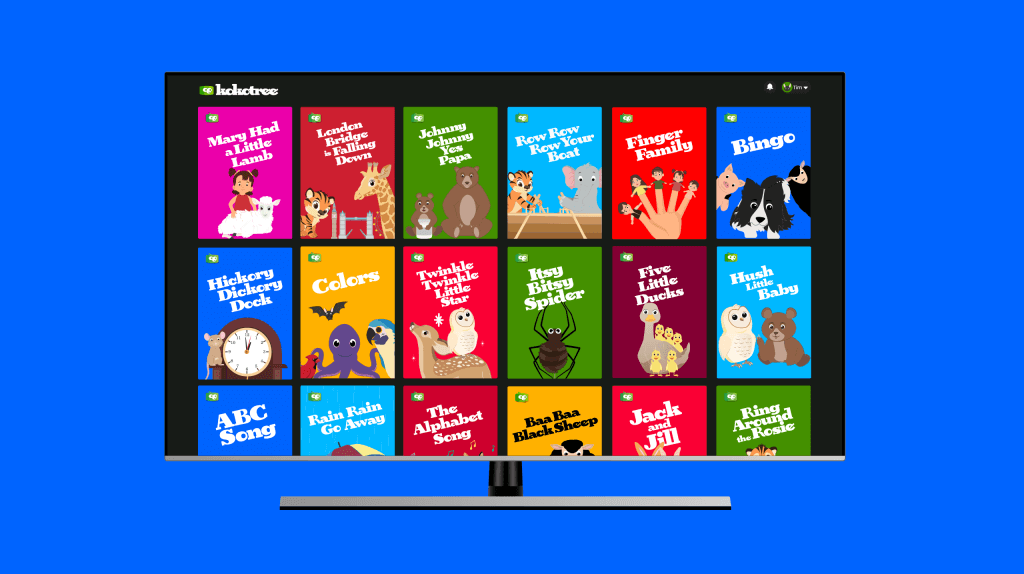
These days, it’s hard to avoid screen time. But if your child is staring at a screen, it might as well be an educational one. There are many great educational shows and apps available for preschoolers.
Letting your child watch an educational app for kids, you’ll be helping them learn colors, shapes, letters, and numbers. You’ll also give them a much-needed break from the hustle and bustle of everyday life.
Chores may not seem suitable for your preschooler’s brain, but they can be very beneficial. That’s because when you give your child chores, you teach them essential life skills like responsibility and time management.
In addition, completing chores gives preschoolers a sense of accomplishment and boosts their self-esteem. And as they learn to juggle their responsibilities, they develop critical executive functioning skills. So don’t be afraid to give your little one some age-appropriate chores.
Educational games for preschoolers are a great way to give your preschooler’s brain a workout. Not only are they fun, but they also help to develop critical cognitive skills. Games that require matching and problem-solving are particularly beneficial, as they help preschoolers to think critically and solve problems.
And as your child plays, they also build their attention span and memory. So break out the games and puzzles, and watch your preschooler’s brain power soar!
Preschoolers are naturally curious creatures, and it’s essential to encourage that curiosity. When you foster a love of learning in your child, you’re setting them up for success in school and life. So ask lots of questions, explore new things together, and never stop learning!
Songs are a great way to engage your preschooler’s brain. That’s because they help to develop language skills and promote creative thinking. In addition, singing is a great way to bond with your child and create special memories. So don’t be afraid to break out into song.
Nature walks are a great way to encourage your preschooler’s curiosity and inspire their love of learning. As you explore the outdoors together, point out different plants and animals, and talk about the different sounds you hear. This helps to stimulate your child’s senses and can spark their interest in the natural world.
In addition, nature walks are an excellent opportunity for physical activity, which is essential for your child’s overall health and development. So get outside and enjoy the fresh air – your preschooler’s brain will benefit from the experience.
Reading is one of the most important things you can do to encourage your child’s intellectual growth. When you read together, you expose them to new vocabulary words, increase their knowledge of the world, and spark their imagination.
In addition, reading helps to develop essential language skills and promotes critical thinking. So make it a point to read together daily – your preschooler’s brain will thank you for it!
Creativity is an essential part of intellectual development, as it helps children think outside the box and develop new ideas. When you encourage your child to be creative, you allow them to express themselves, explore new ideas, and solve problems uniquely.
So don’t be afraid to get messy and have fun – your preschooler’s brain will benefit from the experience.
You’re planting the seeds for success when you help your child imagine a happy and fulfilling future. By encouraging your child to dream big and set their sights high, you’re helping them to develop essential goals and motivate themselves. So take some time to talk about your child’s dreams and aspirations.
Daily affirmations are a great way to help your child build self-confidence and develop a positive outlook on life. When you teach your child to say positive things about themselves, you’re helping them to believe in their abilities and feel good about who they are.
In addition, daily affirmations help to increase self-esteem and promote healthy social and emotional development. So take some time each day to teach your child some positive affirmations.

In addition to letting them draw and scribble, it’s also essential to color with your preschooler. Coloring is an excellent way for your child to develop fine motor skills and learn how to control a pencil or crayon. It’s also a perfect way for them to practice their hand-eye coordination.
So break out the coloring books and crayons, and spend quality time coloring with your little one. You’ll be amazed at how much they improve over time.
Kindness is an important virtue that can help your child in many different areas of their life. When you teach your child about kindness, you’re helping them to develop empathy and compassion for others.
In addition, kindness helps to foster positive social relationships and promote emotional intelligence. So take some time to talk to your child about the importance of being kind.
By teaching your child about forgiveness, you’re helping them be more empathetic and compassionate people and aiding in the development of their social skills and emotional intelligence.
When children understand forgiveness, they’re more likely to be able to resolve conflicts positively and maintain healthy relationships. So take some time to talk to your child about forgiveness.
Success doesn’t come easy – it takes hard work and dedication. But if you instill these values in your child from an early age, they’ll be more likely to achieve their goals in life.
When you teach your child about success, you’re helping them to develop a positive mindset and motivating them to strive for excellence. So take some time to talk to your child about what it takes to be successful.
When you encourage your child to think outside the box, you’re helping them to develop crucial critical thinking skills. You’re also encouraging them to be creative and create new ideas.
So take some time to talk to your child about the importance of thinking outside the box – they’ll be more intelligent!
These are just a few of the many ways you can help your preschooler develop their intellectual skills. By providing stimulating activities and opportunities for learning, you can give your child a head start in school and life.
Don’t hesitate to try out some of these ideas – your preschooler’s brain will thank you for it!



